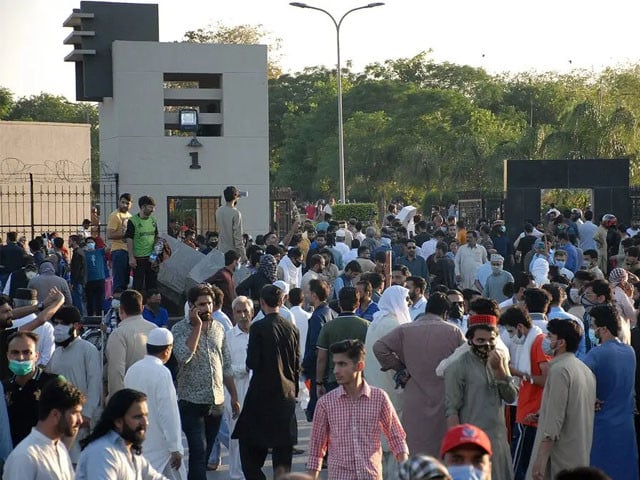In a significant legal development, former Pakistan Tehreek-e-Insaf (PTI) leader Amin Gandapur, along with 13 others, has been indicted in the GHQ (General Headquarters) attack case. The charges stem from allegations of their involvement in an attack targeting Pakistan’s military headquarters.
Background of the Case
The GHQ attack case is one of the most high-profile incidents in Pakistan’s recent history, involving acts that directly threatened the nation’s security infrastructure. The accused are alleged to have played roles in orchestrating and participating in the events that led to the attack.
Details of the Indictment
During the court proceedings, Amin Gandapur and the other accused individuals were formally charged under various sections of the law, including terrorism-related offenses. They pleaded not guilty and have maintained their stance of innocence. The court has ordered the commencement of a detailed trial to examine evidence and witness testimonies.
Implications of the Case
The indictment marks a critical step in the judicial process, as the authorities aim to bring those responsible to justice. Legal experts suggest that the case could set a precedent for handling similar incidents in the future, particularly in addressing acts of violence against state institutions.
Public and Political Reaction
The indictment has drawn mixed reactions from political circles and the public. Supporters of the accused argue that the charges are politically motivated, while others view the move as a necessary measure to uphold the rule of law. The case has also reignited debates about the accountability of political leaders and their role in maintaining national security.
This indictment underscores the judiciary’s resolve to address high-profile cases and ensure accountability. As the trial proceeds, all eyes will be on the court to deliver a verdict that balances justice, transparency, and the rule of law.



Comments (0)
No comments yet. Be the first to comment!
Leave a Comment